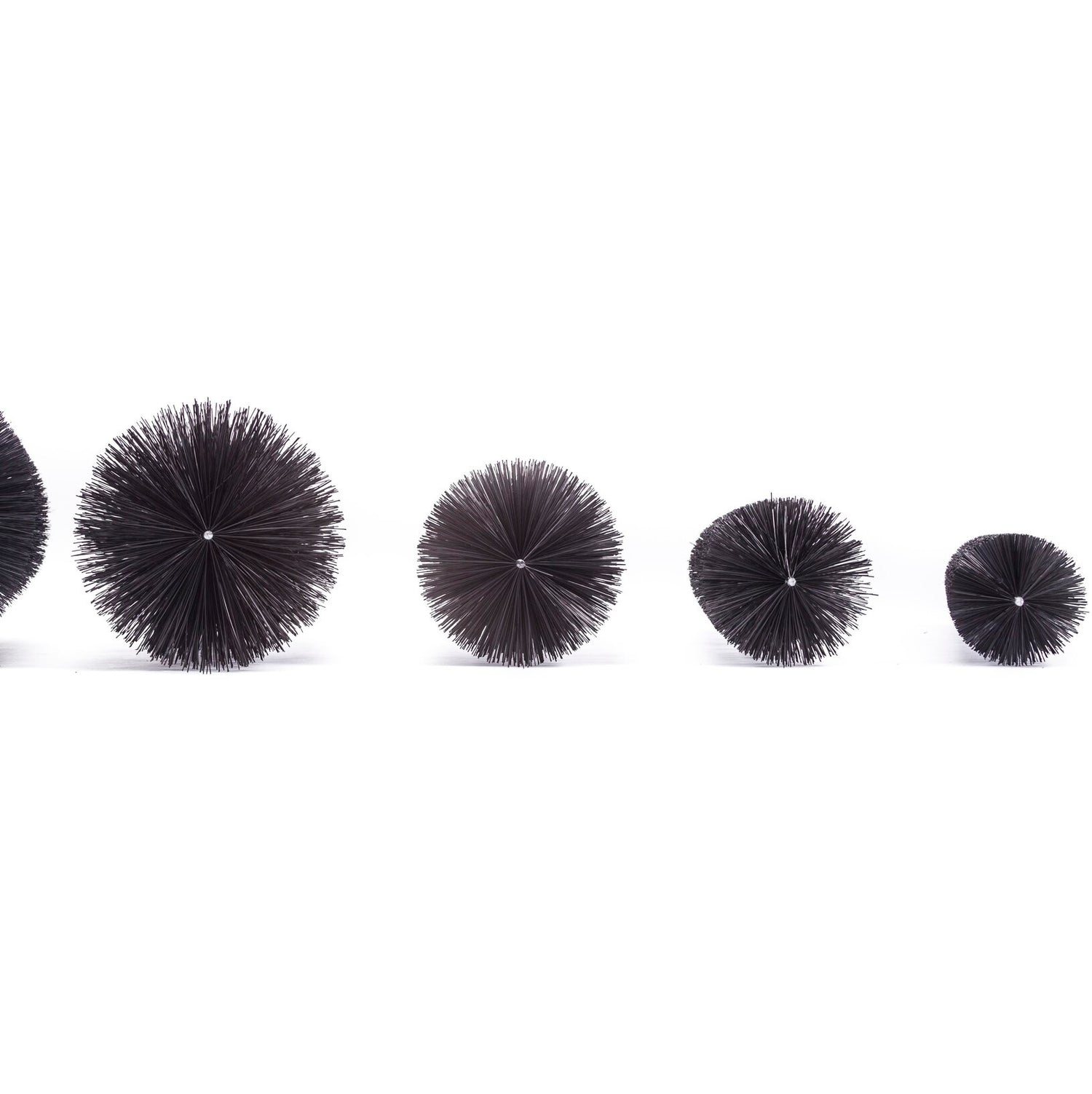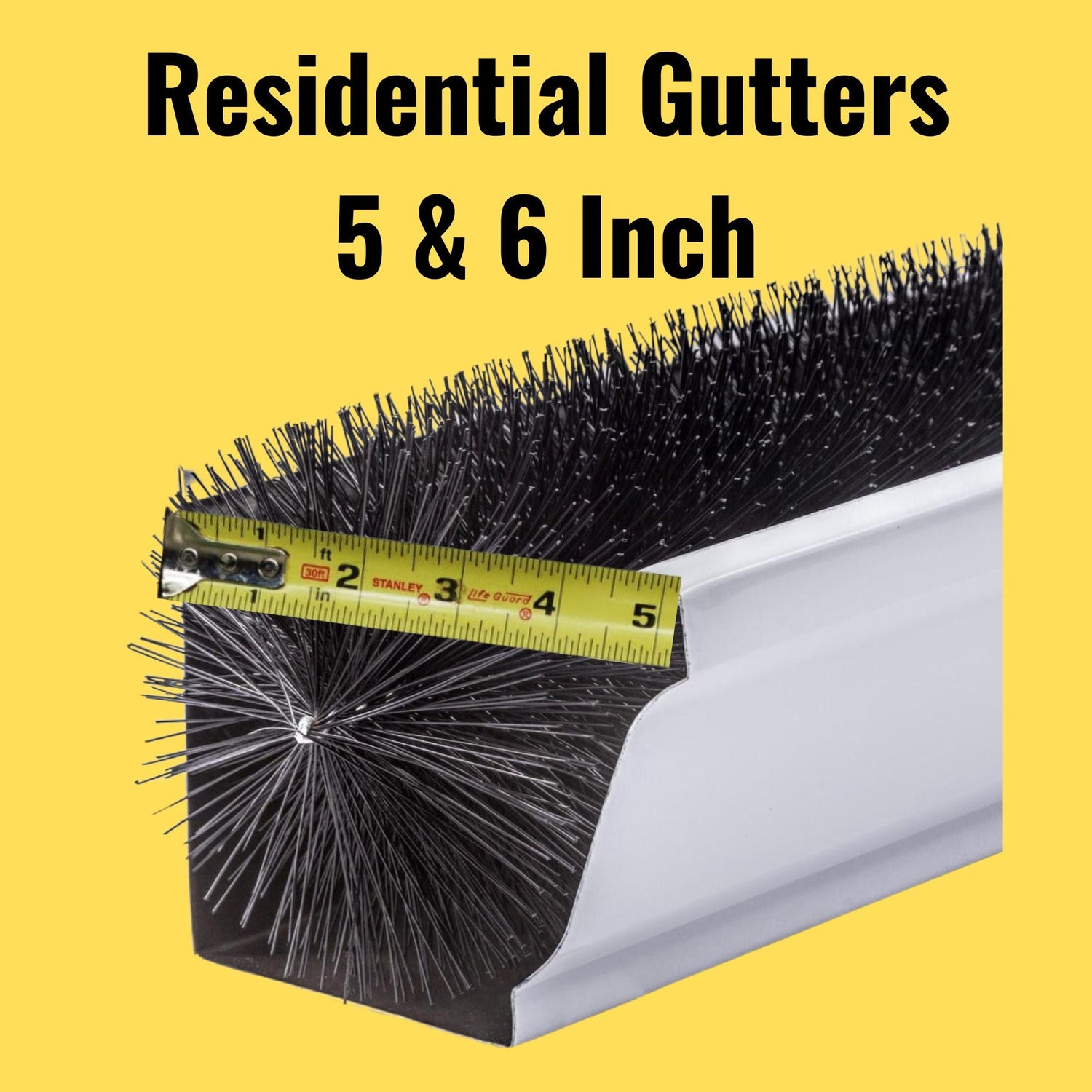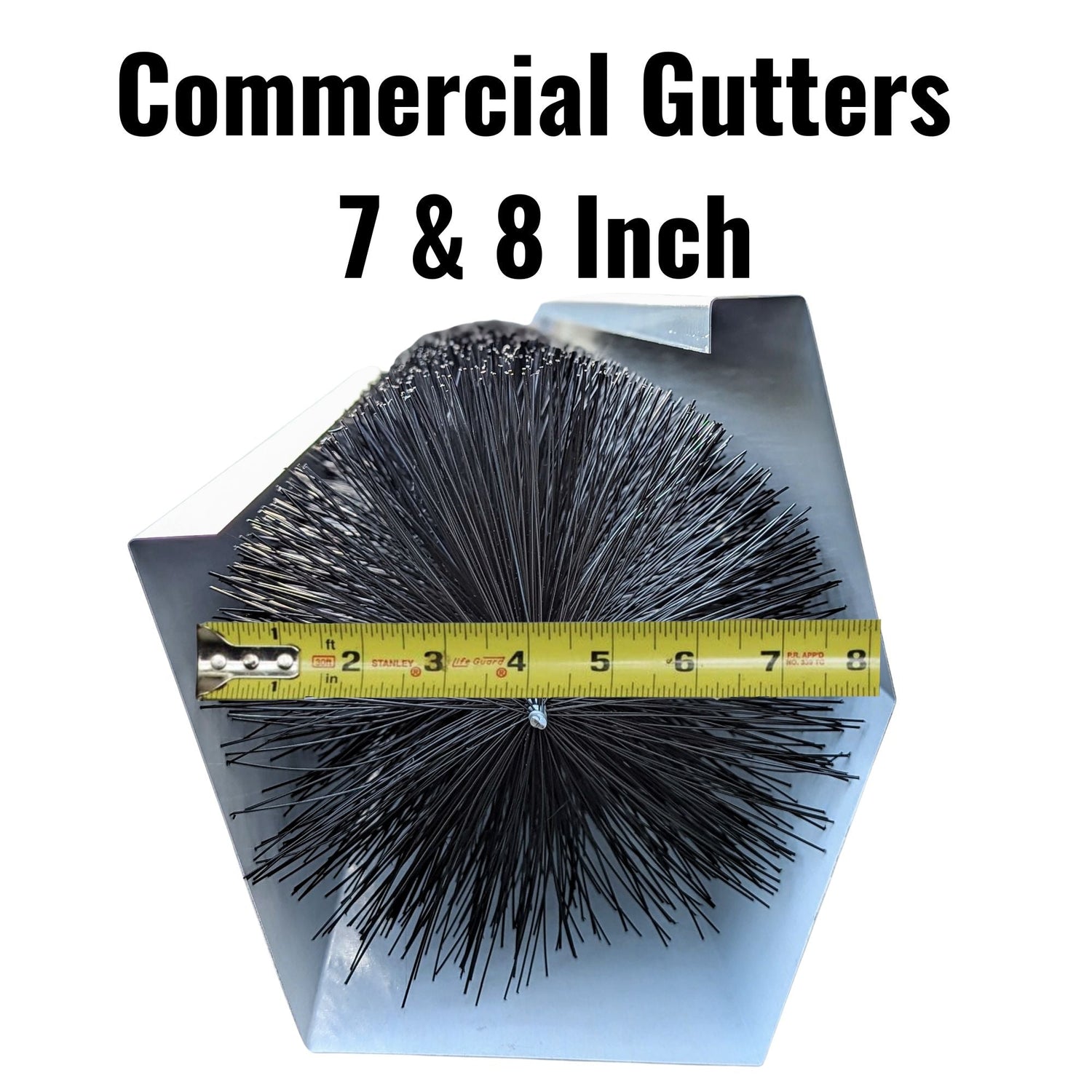Gutter guards are essential components for homeowners seeking to maintain the integrity and functionality of their gutters. By understanding the basic principles and types of gutter guards, you can make an informed decision for your home.
What is a Gutter Guard?
Gutter guards, also known as gutter protectors or covers, are designed to shield gutters from debris while allowing water to flow freely. These guards come in various materials and designs, each offering unique benefits and fitting different gutter types.
Types of Gutter Guards
Mesh Gutter Guards
Mesh gutter guards are designed with a fine mesh that covers the top of your gutters. This mesh acts as a filter, allowing water to pass through while blocking debris such as leaves, pine needles, and even small particles like seeds. The tightly woven mesh is particularly effective in preventing clogs caused by small debris.
- Material: Typically made from stainless steel or aluminum, mesh guards are durable and resistant to rust and corrosion.
- Installation: They can be installed under the first row of shingles or fastened to the fascia. Professional installation is often recommended to ensure proper fitting and effectiveness.
- Maintenance: While mesh guards require minimal maintenance, regular cleaning might be necessary to remove any buildup of fine debris on top of the mesh.
Foam Guards
Foam gutter guards consist of a foam insert that fits directly inside the gutter. The porous foam allows water to flow through while blocking small and large debris like leaves and twigs.
- Material: Made from a durable polyether or polyurethane foam, these guards are not designed to withstand harsh weather conditions. They often curl and degrade from the affects of the sun.
- Installation: Foam guards are easy to install as they simply sit inside the gutter. No tools or professional help are generally required, making them a popular choice for DIY enthusiasts.
- Maintenance: Over time, foam guards may accumulate small debris within the foam itself, necessitating periodic removal and cleaning. Gutter Foam is somewhat flimsy and may need to be repositioned regularly.
Brush Guards
Brush gutter guards are cylindrical in shape and resemble large pipe cleaners. They are made of a central steel wire core with bristles extending outwards just like a bottle brush designed to fit the gutter.
- Material: The bristles are usually made of polypropylene or a similar durable plastic, while the core is typically galvanized steel.
- Installation: Brush guards are self-fitting and easy to install. You simply place them inside the gutters, and they conform to the shape of the gutter.
- Maintenance: GutterBrush is very effective at solving gutter clogging. All gutter guards require maintenance eventually and GutterBrush is very easy to clean, renew and reuse.
Screen Guards
Screen gutter guards are made with a perforated surface that allows water to enter while keeping out larger debris. They have larger openings compared to mesh guards, which makes them suitable for areas with larger leaf debris.
- Material: Commonly made from plastic or metal, screen guards can be customized to fit different gutter sizes and can be durable or some can be flimsy.
- Installation: Some screen guards can be snapped onto the gutter or and secured with screws. They are relatively easy to install but may require some attention to detail to fasten them into place as well as trimming, tools and basic DIY skills.
- Maintenance: While effective at keeping out larger debris, screen guards can allow smaller particles debris to pass through, necessitating periodic cleaning inside the gutter to maintain optimal performance. Unfortunately the screen needs to be removed or lifted to clean inside the gutter when debris gets in there.
Surface Tension Guards
Surface tension guards, also known as gutter helmets or reverse curve guards, utilize the principle of surface tension to guide water into the gutter while directing debris to fall off the edge.
- Material: Typically made from plastic, aluminum or other durable metals, these guards are designed to last for many years without rusting or corroding.
- Installation: Professional installation is often recommended, as these guards need to be precisely fitted to ensure they work correctly. They are usually installed under the roof shingles and extend over the gutter.
- Maintenance: Surface tension guards require minimal maintenance. However, in areas with heavy debris, occasional cleaning of the lip where debris might accumulate is advised. Unfortunately, thin debris does enter the slot opening and when the nose of the guard gets dirty or even green with algae, the water releases too fast and does not end up in the gutter.

1. Prevents Clogs
One of the primary benefits of gutter guards is their ability to prevent clogs. By blocking large debris such as leaves, twigs, and branches, gutter guards ensure that water flows freely through the gutters and downspouts. This helps maintain the efficiency of your drainage system and prevents water overflow, which can cause significant damage to your home, its foundation and landscaping. However, it’s important to note that while gutter guards effectively block larger debris, smaller particles like seeds or pine needles can sometimes pass through. Over time, these small particles can accumulate and potentially cause clogs that require maintenance.
2. Reduces Maintenance
Gutter guards significantly reduce the need for frequent gutter cleaning by keeping most debris out of the gutters. This means you won’t have to climb ladders as often or hire professionals to clean your gutters, saving you time and money. Despite this reduction in maintenance, it’s still necessary to perform occasional check-ups to ensure the system is working properly. Some types of gutter guards, particularly those with larger openings, might allow debris to pass through and settle in the gutters. Regular inspections and minor cleanings can help maintain optimal performance and extend the lifespan of your gutter system.
3. Protects Against Damage
Gutter guards play a crucial role in protecting your home from various forms of water damage. By preventing clogs and ensuring proper water flow, they help avoid issues such as:
- Foundation Erosion: Water overflowing from clogged gutters can pool around the foundation, leading to erosion and weakening the structural integrity of your home.
- Basement Flooding: Properly functioning gutters direct water away from the house, reducing the risk of basement flooding and water damage.
- Exterior Damage: Overflowing water can damage your home's exterior walls, siding, and paint, leading to costly repairs.
While gutter guards are effective in many cases, it’s important to recognize that no system can completely eliminate all forms of gutter-related damage, especially in extreme weather conditions or areas with persistent small debris.
4. Pest Deterrent
Gutter guards can serve as a deterrent to larger pests such as birds, squirrels, and rodents, preventing them from nesting in your gutters. This helps avoid issues like blocked gutters, unpleasant odors, and potential damage caused by these animals. However, even the mesh design of many gutter guards might not fully prevent smaller insects, such as mosquitoes and ants, from entering the gutters. Regular maintenance, including cleaning and inspecting the gutter guards, can help mitigate this issue and ensure your gutters remain pest-free.
How to Care for Your Gutters
Proper care and maintenance of your gutters are essential to ensure they function effectively and protect your home from water damage. Here are some key steps to take for maintaining your gutters:
Regular Inspections
Conduct regular inspections of your gutters to check for any signs of damage, such as cracks, rust, or loose fittings. Look for debris buildup, water overflow, or sagging sections. It's recommended to inspect your gutters at least twice a year, typically in the spring and fall.
Cleaning
Even with gutter guards installed, occasional cleaning is necessary to remove any small debris that may have passed through the guards. Use a garden hose to flush out any remaining debris and ensure the downspouts are clear. For safety, consider hiring a professional if your gutters are difficult to access or if you’re uncomfortable with heights.
Check for Leaks and Repairs
Inspect your gutters and downspouts for leaks or areas where water is escaping. Use gutter sealant to repair any small holes or leaks you find. If you notice significant damage or extensive wear, consider replacing the affected sections to maintain the integrity of your gutter system.
Adjust Slope and Position
Ensure that your gutters have the proper slope to allow water to flow towards the downspouts. The recommended slope is about 1/4 inch for every 10 feet of gutter. Check the position of your gutters and downspouts to ensure they direct water away from your home’s foundation and prevent water pooling.
Trim Nearby Trees
Trim any trees or branches near your roof and gutters to minimize the amount of debris that can fall into the gutters. This helps reduce the frequency of gutter cleaning and prevents potential damage from falling branches. Trimming trees back from the roof area decreases the amount of insects, birds and animals that drop onto your roof.
Maintain Gutter Guards
If you have gutter guards installed, periodically check them to ensure they are securely attached and free of damage. Clean the tops of the guards to remove any accumulated debris that could impede water flow.
By following these steps and performing regular maintenance, you can ensure your gutters remain effective in protecting your home from water damage; and prolong their lifespan. Proper care and attention to your gutters can save you time, money, and prevent potential issues down the road.
Gutter Guard: A Case Study
Gutter Guard is a popular choice among homeowners. Their key features include:
- Material Durability: Made from aluminum and stainless steel, these guards resist warping, cracking, and rusting. While durable, aluminum and stainless steel can still suffer damage in harsh environments or under heavy debris load, impacting performance.
- Flexible Installation: Compatible with any gutter and roof type. Though compatible with many gutter types, improper installation of Gutter Guard could lead to reduced effectiveness or damage to the gutters or roof.
- Ease of Installation: DIY installation, while convenient, carries the risk of incorrect placement, potentially leading to performance issues or the need for professional intervention.
- Advanced Technology: Featuring patented V-Bend technology for superior water filtration and self-cleaning capabilities.The V-Bend technology, although innovative, may not completely prevent all types of debris accumulation, especially with very small or sticky substances.
Comparing with GutterBrush
Installation Ease and Cost
- GutterBrush: Known for its simplicity, GutterBrush installation involves simply placing the self fitting brush into the gutter, requiring no special tools or professional services. This DIY-friendly approach often leads to lower installation costs.
- Gutter Guard: While also designed for DIY installation, Gutter Guard may require more precise placement and securing, potentially increasing the complexity and cost of installation, especially if professional help is sought.
Overall Cost
- GutterBrush: The cost-effectiveness of GutterBrush is highlighted by its low-maintenance design. Its longevity and the infrequency of cleaning reduce long-term costs.
- Gutter Guard: While the initial material cost of Gutter Guard might be comparable, potential additional installation costs and the need for occasional maintenance can increase the overall expenditure over time.

Effectiveness and Efficiency
GutterBrush's approach of preventing clogs provides a balanced solution that requires less frequent maintenance. In contrast, Gutter Guard's mesh design, aiming to block almost all debris, may require more attention to ensure it remains clear and effective. This difference in design philosophy reflects in their overall cost-effectiveness and maintenance requirements. When you try to keep all of the debris out of the gutter, you often also cause the water to miss the gutter. GutterBrush balances keeping debris out with water acceptance. Gutterbrush accepts water better than any other gutter guard.
Choosing the Right Guard
Selecting the appropriate gutter guard is essential. While mesh systems like Gutter Guard provide thorough filtration, GutterBrush offers a balanced solution that caters to both debris prevention and water management. It's a preferred choice for homeowners seeking reliable gutter protection with minimal maintenance. The right gutter guard, such as GutterBrush, significantly eases gutter maintenance and protects homes from water damage, offering peace of mind and long-term savings.
Key Takeaways
- What are gutter guards? Gutter guards are essential for preventing clogs and reducing gutter maintenance, ensuring smooth water flow and safeguarding the home from water damage.
- Different types of gutter guards (mesh, foam, brush, screen, surface tension) offer unique benefits, fitting various gutter and roof types.
- Gutter Guard an effective mesh design with durable materials, easy DIY installation, and environmental friendliness.
- GutterBrush offers a unique approach to gutter protection, focusing on preventing clogs without completely blocking debris, balancing water acceptance and clog prevention.
- Choosing the right gutter guard depends on individual needs and home structure, with the goal being ease of maintenance and effective protection.
About GutterBrush
At GutterBrush, we offer innovative gutter protection systems for both Residential and Commercial properties. Our unique brush technology, recognized by Home & Garden TV, The Family Handyman, At Home with Gary Sullivan, and Home Depot, ensures your gutters remain clog free while filtering rainwater, reducing the need to frequently buy gutter guards.
A family-owned company serving American homesteads since 2004, we're proud to have over 1200 5-star reviews, supported by a 10-year material warranty and a 365-day refund policy.




